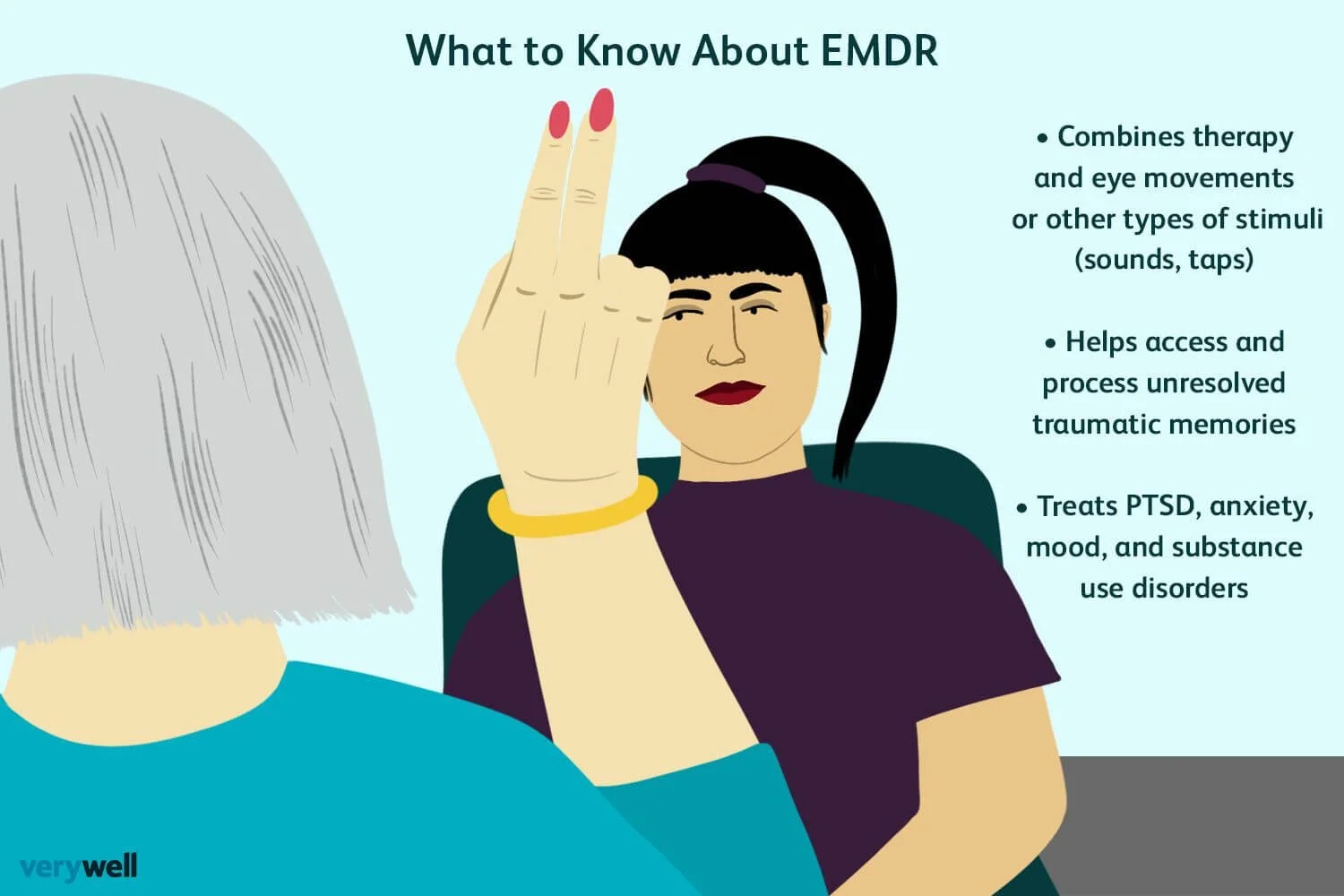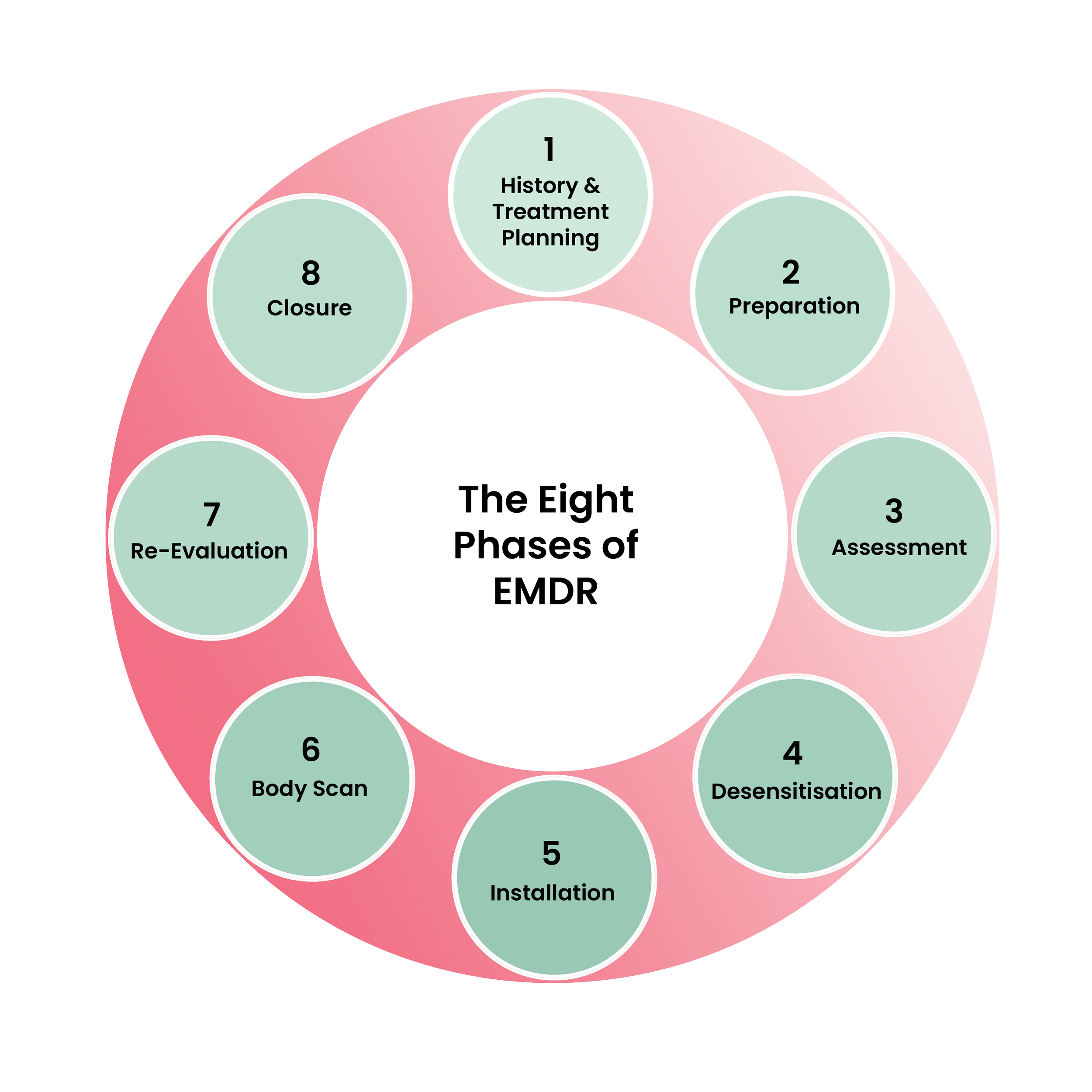Exactly How EMDR Treatment Works: a Detailed Take A Look At the Process and Its Performance
EMDR therapy has become a noticeable therapy for trauma-related problems. Its structured method includes numerous phases designed to facilitate the processing of distressing memories. Central to this technique is the principle of bilateral excitement, which plays a necessary duty in just how memories are refined. Understanding these elements reveals much regarding the therapy's efficiency. What particularly happens during an EMDR session, and just how does it impact the healing journey?
Understanding the Concepts of EMDR Treatment
EMDR therapy, or Eye Motion Desensitization and Reprocessing, runs on the facility that unsettled distressing experiences can hinder psychological wellness. This cutting-edge therapeutic method aims to assist in the handling of traumatic memories, allowing people to gain a much healthier perspective on their past. Central to EMDR is the concept of reciprocal excitement, typically attained via led eye movements, which is thought to help integrate stressful memories right into a much more adaptive structure.

The Eight Phases of EMDR Therapy
The procedure of EMDR therapy unravels over eight distinctive phases, each designed to direct customers via an organized approach to healing trauma. The initial stage involves history-taking, where the therapist analyzes the client's history and determines target memories. In the 2nd stage, clients learn relaxation techniques to take care of distress. The third stage concentrates on recognizing negative beliefs related to the terrible memory.
The fourth stage is where the desensitization process begins, enabling customers to refine the traumatic memory. The fifth phase entails mounting favorable ideas to change the negative ones. In the 6th phase, customers are led to assess their emotional and physical reactions to the refined memory. The seventh phase stresses closure, aiding customers go back to a state of balance. Ultimately, the 8th stage entails reevaluation, where clients and specialists evaluate progression and deal with any type of residual distress. This detailed method promotes a pathway to recovery and durability.
The Role of Reciprocal Stimulation
Reciprocal stimulation is a vital element of EMDR therapy, promoting the handling of traumatic memories. This technique entails rotating stimulation of both hemispheres of the brain, typically attained with eye movements, auditory tones, or responsive sensations. The function of bilateral excitement is to engage the mind's all-natural details handling system, which may end up being disrupted adhering to injury.
By triggering both sides of the mind, bilateral excitement aids clients accessibility and recycle distressing memories in an extra flexible means. This strategy encourages the integration of stressful experiences, lowering their psychological cost and making it possible for customers to create brand-new point of views.

Additionally, reciprocal excitement might advertise leisure and minimize anxiety during sessions, developing a much safer setting for clients to face excruciating memories. Inevitably, this technique improves the restorative process, allowing individuals to approach recovery and resolution.
Proof Supporting the Effectiveness of EMDR
Research study has shown that EMDR therapy works in treating various mental problems, particularly trauma (PTSD) Various researches have actually shown considerable reductions in PTSD symptoms following EMDR therapy. A meta-analysis of randomized regulated tests found that EMDR was as reliable as cognitive behavioral treatment (CBT) for PTSD, with enduring impacts observed even months after treatment. Additionally, the American Psychological Association and the World Health Company support EMDR as a suggested therapy for trauma-related conditions.
Beyond PTSD, study suggests that EMDR can also profit individuals experiencing stress and anxiety, depression, and fears. An expanding body of evidence sustains its use in diverse Discover More populaces, consisting of professionals and youngsters - best emdr therapy in nyc. In general, the gathering research study underscores EMDR's prospective as a versatile therapeutic option, leading the way for additional exploration right into its devices and applications in mental health treatment
What to Anticipate Throughout an EMDR Session
During an EMDR session, clients can anticipate a structured yet adaptable strategy targeted at handling terrible memories. The therapist starts by establishing a risk-free atmosphere, where customers can feel comfortable sharing their experiences. First discussions focus on identifying particular memories and connected unfavorable beliefs.
Clients are guided to concentrate on these memories while at the same time taking part in reciprocal excitement, generally through directed eye motions or touching. This dual focus click for more info intends to facilitate the processing of the injury, allowing clients to reframe their experiences and decrease psychological distress.
Throughout the session, therapists monitor customers' reactions, adjusting the pace and technique as needed. Sessions might consist of leisure methods or cognitive restructuring to reinforce favorable beliefs. Overall, customers can prepare for a supportive atmosphere that motivates visit site self-exploration and healing, eventually bring about a higher sense of psychological health.
Frequently Asked Inquiries
Is EMDR Treatment Suitable for Kid or Adolescents?
EMDR therapy can be appropriate for teenagers and children, provided it is adapted to their developing needs (best emdr therapy in nyc). Medical professionals usually customize methods to ensure safety and security and performance, supporting more youthful populations in processing trauma and psychological distress
How Much Time Does EMDR Treatment Typically Last?
EMDR treatment generally lasts in between 8 to 12 sessions, with each session varying from 60 to 90 minutes. Nonetheless, specific requirements and the complexity of injury can affect the total duration of treatment.
Can EMDR Therapy Be Done Remotely or Online?
EMDR therapy can undoubtedly be performed remotely or online. Lots of specialists have adapted their approaches to online atmospheres, allowing clients to involve in reliable sessions from the comfort of their homes, preserving restorative benefits.
What Are the Prospective Negative Effects of EMDR?
Possible adverse effects of EMDR treatment might include temporary emotional distress, increased anxiety, brilliant memories, and physical discomfort. People could additionally experience exhaustion or headaches complying with sessions, as the mind processes intense feelings and memories.
How Does EMDR Contrast to Typical Talk Therapy?

EMDR treatment, or Eye Motion Desensitization and Reprocessing, operates on the property that unsolved terrible experiences can impede psychological health. The procedure of EMDR therapy unravels over 8 distinctive stages, each made to assist customers via an organized method to recovery injury. Reciprocal excitement is a necessary element of EMDR therapy, helping with the handling of stressful memories. During an EMDR session, clients can expect a structured yet adaptable method intended at processing stressful memories. Possible side results of EMDR therapy might include short-term emotional distress, enhanced stress and anxiety, dazzling memories, and physical pain.